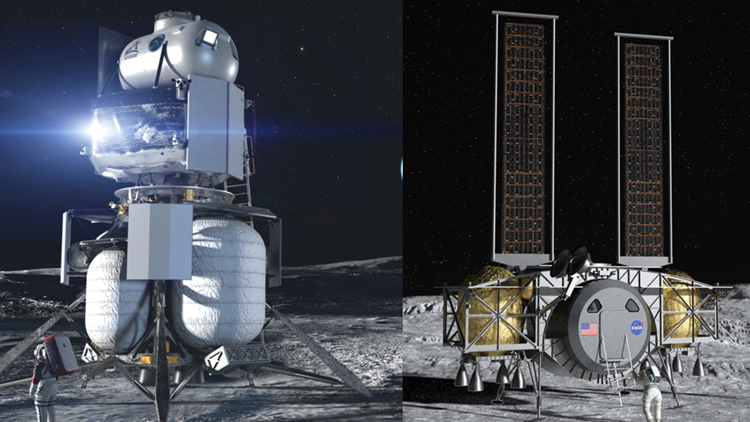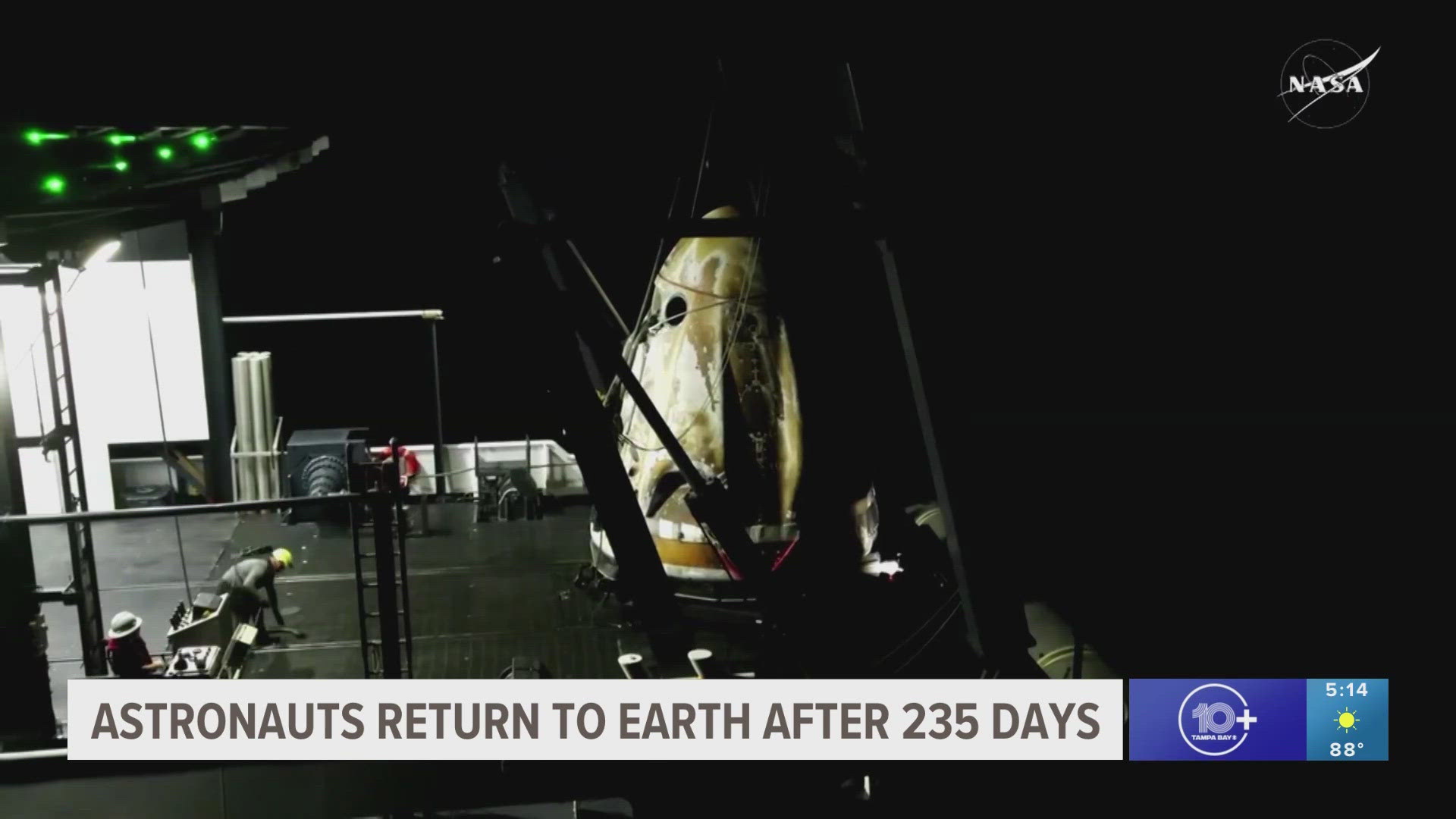Protests against SpaceX being the sole winner of NASA's $2.89 billion contract to design and develop a human landing system for its Artemis program have been denied.
Jeff Bezo's Blue Origin and Dynetics, the other two companies in the running for the contract, first filed their protests with U.S. Government Accountability Office (GAO) back in April.
Now, three months later, the GAO says the two companies' arguments weren't proven or strong enough to warrant corrective action.
According to a press release, Blue Origin and Dynetics made the following claims:
- NASA was required to make multiple awards available.
- NASA was required to open discussion, amend or cancel the announcement once a lack of funding to support multiple human landing system contracts was determined.
- NASA unreasonably evaluated all three proposals.
- NASA improperly waived a mandatory solicitation requirement for SpaceX.
RELATED: Jeff Bezos offers to cover $2 billion worth of costs in last-ditch effort to land NASA contract
But the GAO didn't necessarily agree with all those claims, saying the nation's top space agency didn't violate procurement law or regulation with the decision that was made.
"NASA did not violate procurement law or regulation when it decided to make only one award. NASA’s announcement provided that the number of awards the agency would make was subject to the amount of funding available for the program. In addition, the announcement reserved the right to make multiple awards, a single award, or no award at all," the office wrote.
Blue Origin and Dynetics were dealt two other blows when the GAO determined NASA was not required to amend or cancel the announcement due to short funds and that evaluations of all three proposals made were reasonable.
A small victory, if that, for the protests was the agreement that there was one "limited instance" in which NASA waived a requirement of SpaceX's announcement. The only caveat? The GAO said the two company's failed to show how "competitive prejudice" was applied as a result of the discrepancy.
NASA released the following statement on the decision:
“NASA was notified Friday, July 30, that the U.S. Government Accountability Office has denied the protests filed by Blue Origin Federation and Dynetics and has upheld the agency’s source selection of SpaceX to continue the development of its human landing system. The decision enables NASA to award the contract that will ultimately result in the first crewed demonstration landing on the surface of the Moon under NASA’s Artemis plan. Importantly, the GAO’s decision will allow NASA and SpaceX to establish a timeline for the first crewed landing on the Moon in more than 50 years."
“NASA is moving forward with urgency, but astronaut safety is the priority and the agency will not sacrifice the safety of the crew in the steadfast pursuit of the goal to establish a long-term presence on the Moon."
The current status of the contract means SpaceX will be the company to build the spacecraft set to carry astronauts to the lunar surface for the first time in about 50 years when astronaut Harrison Schmitt became the last U.S. person to step foot on the Moon in 1972.
According to NASA, the human landing system will allow for the exploration of new technology that could help the agency land on Mars and other planets in the future.
While SpaceX is the sole contract winner for now, due to an "overall strategy" and budget constraints, earlier this year NASA said it will start having industry discussions about how to further develop additional competition on a future services contract.
“As soon as possible, NASA will provide an update on the way ahead for Artemis, the human landing system, and humanity’s return to the Moon," the space agency wrote.



